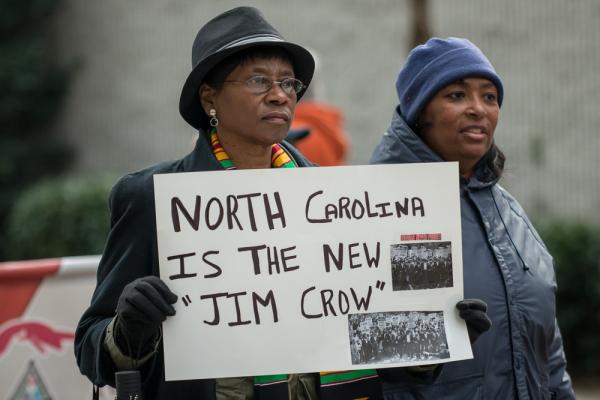Aug 1, 2016
Since the summer of 2013, we have called this law — which the 4th Circuit struck down on Friday — a monster voter suppression bill. It was the first and the worst of many voter suppression measures to pass through state houses since the Supreme Court’s Shelby decision stripped the Voting Rights Act of its power to guarantee fair elections in this country. In many ways, it performed the new Southern Strategy of James Crow, Esq., which attempts to hold onto power as white voters become one among many minorities in this country. It is a strategy that necessarily depends on old fears, racism, and divide-and-conquer tactics.
Read the Full Article

Already a subscriber? Login
